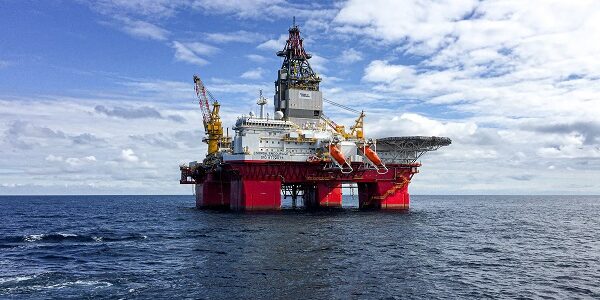This is the concluding part of our article the “New Licensing Regime under the Petroleum Industry Act (PIA)”. This series deals with the new licensing regime under the midstream and downstream sectors. As stated in our first article on the Petroleum Industry Act 2021, the Nigerian Midstream and Downstream Regulatory Authority (Authority) is the new body that is responsible for regulating the Midstream and Downstream sectors and is responsible for issuing licences to operators in these sectors.
Grant of Licences and Permits in Midstream and Downstream Petroleum Operations
The Authority publishes the applications for the grant of licence or renewal in respect of which comments or representations may be made.[1]There is an obligation to comply with the Land Use Act as it relates to compensation for acquisition of land in respect of which a licence or permit has been issued by the Authority for Midstream and Downstream petroleum operations.[2]
Licences in Midstream and Downstream Gas Operations
The activities that require a licence in the midstream and downstream gas operations include establishing, constructing or operating a facility for the processing and storage, of natural gas, engaging in wholesale gas supply, etc. [3] Licences to be obtained under the Midstream and Downstream gas operations include:
- Gas processing licence – grants the licensee the right to install and operate gas conditioning plants, gas processing plants, gas to liquids plants, liquefied natural gas (LNG) plants and ethane extraction plants.[4]
- Bulk gas storage licence – grants the licensee the right to undertake the bulk storage of natural gas either for its own account or on behalf of customers.[5]
- Gas transportation pipeline licence – gives the holder the exclusive right to own, construct, operate and maintain a gas transportation pipeline within a route defined in the licence for its own account with third party access or as common carrier.[6] The holder cannot supply gas to customers on its own account where it is granted on a common carrier basis.[7] The licence is also required for unprocessed gas that needs to be transported.[8]
- Gas transportation network operator licence – authorises the holder to convey natural gas through the gas transportation network, balance the inputs and off takes from the gas transportation network, charge for the use of the gas transportation network, etc.[9]
- Wholesale gas supply licence – authorises the holder to purchase natural gas directly from any lessee or third party and sell and deliver wholesale gas to wholesale customers and gas distributors at any location in Nigeria.[10]
- Retail gas supply licence – authorises the holder to sell or retail compressed or liquefied marketable natural gas to customers and establish, construct and operate facilities to deliver compressed natural gas and small-scale facilities for LNG.[11] It also authorises the holder to purchase marketable natural gas directly from a lessee, wholesale gas supplier or third party, and sell and deliver compressed or LNG to customers at any location in Nigeria on a free market basis.[12]
- Gas distribution licence – grants the holder the right to establish, construct, and operate a gas distribution system and to distribute and sell its natural gas to consumers in a local distribution zone,[13] including retail customers.[14]
- Domestic gas aggregation licence – the licence is issued for a period of 2 years and renewal in each instance is also for 2 years.[15] A domestic gas aggregator supports the implementation of the domestic gas delivery obligation in addition to other functions that it is expected to carry out.[16] The domestic gas aggregator is required to be a company limited by guarantee established under the Companies and Allied Matters Act.[17]
Midstream and Downstream Petroleum Liquid Operations
The following licences may be granted to qualified applicants in the midstream and downstream liquid sector:
- Crude oil refining licence – permits the licensee to procure, construct, install and operate facilities to process crude oil on its own account into derivative chemicals and petroleum products and to sell such chemicals and petroleum products.[18] The licence gives the holder right of access to facilities which include harbours, jetties, petroleum bulk storage, transportation facilities and pumping installations.[19]
- Bulk petroleum liquids storage licence – authorises its holder to undertake the bulk storage of petroleum liquids whether for its own account or on behalf of customers.[20]
- Petroleum liquids transportation pipeline licence – grants the holder the exclusive right to own, construct, operate and maintain a transportation pipeline for the transportation of petroleum liquids within a defined route.[21]
- Petroleum liquids transportation network operator licence – gives the holder the right to:[22]
- Convey petroleum liquids through the transportation network;
- Balance the inputs and off takes from the transportation network;
- Wholesale petroleum liquids supply licence – authorises the supplier (the holder) to sell and deliver petroleum liquids to bulk customers in Nigeria or for export.[23] The company that is entitled to this licence is one that is a lessee producing crude oil or condensates or both or a holder of a crude oil refining licence.[24]
- Petroleum products distribution licence – authorises the licensee to distribute petroleum products.[25] The licensee has the duty to carry out its activities in line with the provisions of the Act.
- Licence to construct and operate a facility for retail supply and distribution of petroleum products – authorises the holder to establish, construct and operate a facility to be employed for retail sale of petroleum products.[26]
- Licence to operate a facility for the production of petrochemicals – authorises the holder to establish, construct and operate a facility for the production of petrochemicals and sell the petrochemicals produced.[27]
Environmental Management
Licensee and lessors in upstream and midstream petroleum operations are to submit an environmental management plan to their respective regulators in respect of projects requiring environmental impact assessment.[28]
The Act seeks to ensure an eco-friendly petroleum operation by making contributions towards remediation of environmental damage by licensees and lessees a condition for the grant of the licence or lease.[29]
Conclusion
Under the PIA, the agency that now has the responsibility for licensing the with the midstream and downstream sectors is the Nigerian Midstream and Downstream Regulatory Authority. There are now a variety of licenses to be obtained either in the gas or petroleum liquid operations under the midstream or downstream sectors. These include Gas processing licence, Bulk gas storage licence, Gas transportation pipeline licence, Gas transportation network operator licence, crude oil refining licence etc.
Watch out for our next publication on the PIA to be published next week and which shall consider the fiscal and tax regimes under the PIA..
Please note that the contents of this Article are for general guidance on the Subject Matter. It is NOT legal advice.
For further information or to see our other service offerings, please visit www.goldsmithsllp.com or contact us:







